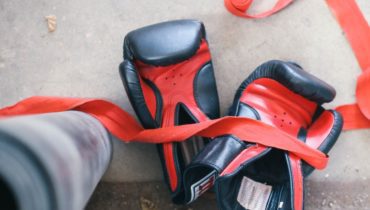Do you remember going on field trips when you were in school?
In elementary school I remember going to a farm and milk processing plant to see how milk was made and bottled. In middle school I remember going to Frankenmuth, MI to get a glimpse of German culture. In high school I had the experience of being selected for a marching band that played during a half time show at a Michigan State University football game. Note: MSU later became my alma mater.
These were some of the field trips I learned from several decades ago and I still remember them today. What field trips do you remember?
Create Experiential Learning Activities
Experiential learning is simply the process of learning through experience.
Adding “hands-on” experiences to supplement your small group studies and discussions can increase your members’ understanding and retention. These experiences can be like field trips that take place at a different location from your regularly scheduled small group meetings. They can also be experiences planned during your meetings.
Benefits of Experiential Learning Activities
Adding experiential learning activities provides many benefits to your small group.
Breaks the Routine
By changing the routine in your small group, you cause your members to think differently. You take them out of their comfort zone. This forces them to pay a little more attention to what is going on. It also puts them in a more creative mode than they are probably in for your small group discussions.
High Learning Retention
Experiential learning activities improve a person’s understanding and increases their learning retention about the topic. That is one of the reasons field trips taken several decades ago are still remembered.
Brings the Group Closer Together
By doing experiential learning activities as a group, you can bring the group closer together. Members get to see each other participating in a new learning environment. Because we all react a little differently when put in these real-world experiences, it provides more insight into who each of the members are. Knowing each other better brings them together.
A Simple Example
As I said earlier, experiential learning activities don’t have to occur outside the meeting. You can plan and schedule them into your scheduled meeting.
Here is an example of a simple experiential activity that could be done when talking about the topic of thankfulness:
Before or after the small group discussion, hand out thank you cards and stamped envelopes to the small group members. Ask them to think of someone who has recently done something they are thankful for. Then have them write a short thank you note to that person. Tell them before they write their thank you note that you are going to invite them to share what they write. I also recommend you have a sample thank you note already written to give them an idea of what might be included in a note written for this purpose.
After the notes are written, allow members to share what the wrote with the group. Then reflect on what was learned from the activity.
After the activity is discussed, have them put the note in the envelope and put the person’s name on the front of it. If they know the address of the person, have them write it on the front of the envelope as well. If not, have them look it up after the meeting and send it to you. If you don’t hear from them give them a call so that it isn’t forgotten.
Then send out the thank you notes!
Doing this does not take a significant amount of time and is a tangible way they can show their thanks to others. Encourage them to carry thank you notes with them. When they get a break, think about people they are thankful for and then write and send a note to them.
Question: What experiential learning activities have you done in the past or that you would like to do with your small group in the future? You can leave a comment by clicking here.
Get more stuff like this
Subscribe to our mailing list and get interesting stuff and updates to your email inbox.
Thank you for subscribing.
Something went wrong.


Personally I LOVE this. I am more of a kinesthetic learner, so experiential learning helps me tremendously in retaining information. Therefore I tend to create things that help beyond the standard, audio learning experiences.
Two examples:
1) When facilitating a group on “cultural values”, I have several photos that relate to certain key values that I show to help emphasize that value. One in particular is what we call “we over me”. At the end I send everyone home with a photographic illustration of this key.
WE
ME
2) The other is at the end of a group we call Freedom Group. i have a quote from the leader guide on a picture with a key on a background of sand. The quote reads “God unlocks us from our past, then hands us the keys in order to unlock other”. I also hand them a sort of decorative key as a take away.